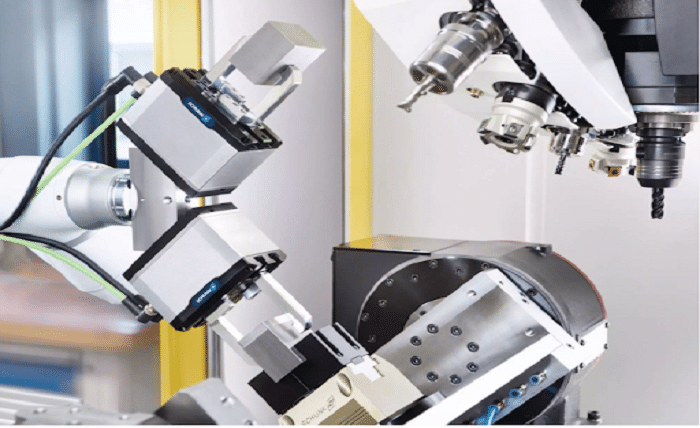The rapid development of technology has profoundly transformed various aspects of our lives, including how we maintain and improve our wellness. From healthcare advancements to fitness apps, technology has made it easier to manage and enhance our physical and mental well-being. This comprehensive guide will explore the numerous ways technology positively affects our wellness, highlighting key advancements and their benefits.
Advancements in Healthcare Technology
One of the most significant areas where technology has positively affected our wellness is healthcare. Modern medical technology has revolutionized diagnostics, treatments, and patient care. Advancements such as telemedicine, wearable health devices, and electronic health records have made healthcare more accessible and efficient. Understanding these advancements helps us appreciate how technology contributes to better health outcomes.
Telemedicine: Access to Care Anywhere
Telemedicine is a prime example of how technology has improved wellness by making healthcare more accessible. Patients can now consult with healthcare providers from the comfort of their homes, reducing the need for in-person visits. Telemedicine has been particularly beneficial during the COVID-19 pandemic, ensuring continuity of care while minimizing exposure risks. This technological advancement has made healthcare more convenient and timely.
Wearable Health Devices
Wearable health devices, such as fitness trackers and smartwatches, have become popular tools for monitoring and improving wellness. These devices track various health metrics, including heart rate, steps taken, sleep patterns, and more. By providing real-time data, wearable health devices empower individuals to make informed decisions about their health and wellness. The convenience and accessibility of these devices make them valuable for maintaining a healthy lifestyle.
Mental Health Support through Technology
Technology has also made significant strides in supporting mental health. Online therapy platforms, mental health apps, and virtual support groups provide accessible and affordable mental health resources. These tools help individuals manage stress, anxiety, depression, and other mental health conditions. By offering anonymous and convenient access to mental health support, technology plays a crucial role in improving overall well-being.
Fitness and Wellness Apps
Fitness and wellness apps have transformed how we approach physical activity and healthy living. These apps offer personalized workout plans, nutrition tracking, and mindfulness exercises, making it easier to incorporate wellness into our daily routines. With the help of technology, individuals can set fitness goals, track progress, and stay motivated. The wide variety of fitness and wellness apps ensures that there is something for everyone, regardless of fitness level or preference.
Nutrition and Diet Management
Technology has made it simpler to manage nutrition and diet. Apps and websites provide nutritional information, meal planning, and calorie tracking, helping individuals make healthier food choices. Additionally, technology enables easy access to dietary advice from nutritionists and dietitians through virtual consultations. By leveraging these tools, individuals can maintain balanced diets and achieve their wellness goals.
Health Information and Education
The internet has democratized access to health information and education. Reliable health websites, online courses, and educational videos provide valuable insights into various health topics. Individuals can educate themselves about preventive measures, treatments, and healthy habits. This widespread access to health information empowers people to take control of their wellness and make informed decisions about their health.
Chronic Disease Management
Technology has significantly improved the management of chronic diseases. Remote monitoring devices and health apps allow patients to track their condition and share data with healthcare providers. This continuous monitoring helps in the early detection of potential issues and timely intervention. By facilitating better disease management, technology enhances the quality of life for individuals with chronic conditions.
Social Connectivity and Support
Social connectivity is an essential aspect of wellness, and technology has made it easier to stay connected with friends and family. Social media platforms, video calls, and messaging apps enable people to maintain relationships and offer support, regardless of physical distance. This connectivity is crucial for emotional well-being, providing a sense of community and reducing feelings of isolation.
Future Trends in Wellness Technology
The future of wellness technology looks promising, with advancements in artificial intelligence, virtual reality, and personalized medicine. AI-powered health tools can offer more accurate diagnostics and personalized treatment plans. Virtual reality can provide immersive experiences for mental health therapy and physical rehabilitation. Personalized medicine, driven by genetic information, can tailor treatments to individual needs. Keeping an eye on these trends helps us understand the potential future benefits of technology on wellness.
Conclusion
The development of technology has undeniably had a positive impact on our wellness. From advancements in healthcare to mental health support and fitness apps, technology provides numerous tools and resources to improve our well-being. By embracing these technological innovations, we can lead healthier, happier lives. As technology continues to evolve, its role in enhancing wellness will only become more significant, offering even greater benefits in the future.
FAQ
1. How has technology improved healthcare accessibility?
Technology, through telemedicine and electronic health records, has made healthcare more accessible and efficient, allowing patients to receive care from anywhere and ensuring better continuity of care.
2. What are wearable health devices, and how do they contribute to wellness?
Wearable health devices, such as fitness trackers and smartwatches, monitor health metrics like heart rate and sleep patterns, helping individuals make informed decisions about their wellness.
3. How does technology support mental health?
Online therapy platforms, mental health apps, and virtual support groups provide accessible and affordable mental health resources, helping individuals manage various mental health conditions.
4. What are the benefits of fitness and wellness apps?
Fitness and wellness apps offer personalized workout plans, nutrition tracking, and mindfulness exercises, making it easier for individuals to incorporate wellness into their daily routines and stay motivated.
5. How has technology improved the management of chronic diseases?
Remote monitoring devices and health apps allow for continuous tracking and data sharing with healthcare providers, facilitating early detection and timely intervention for better chronic disease management.





